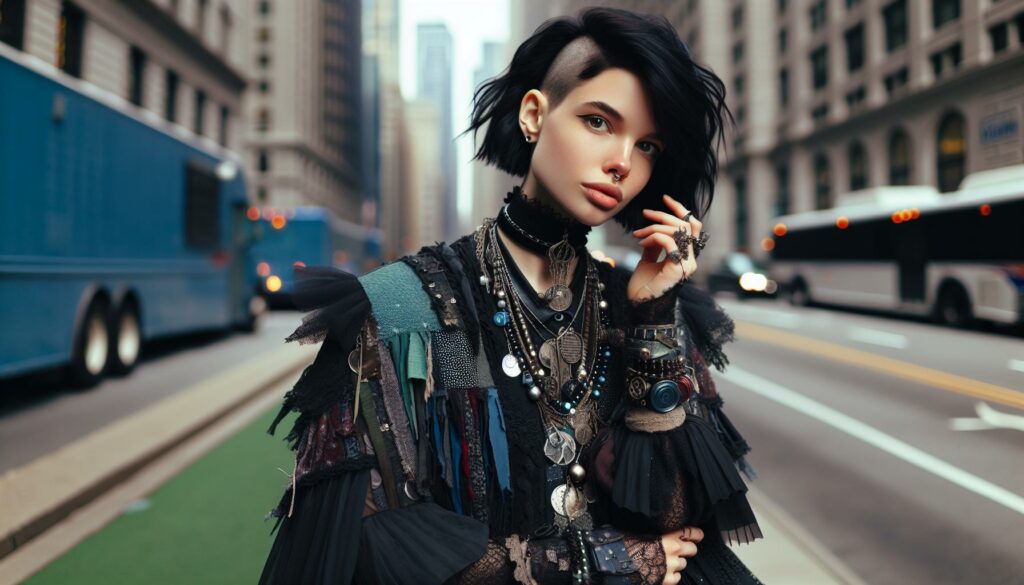As I dive into the world of sustainable fashion, I can’t help but feel inspired by the growing opportunities within this vibrant industry. With climate change and ethical concerns at the forefront, more people are seeking careers that align with their values. Sustainable fashion isn’t just a trend; it’s a movement that’s reshaping how we design, produce, and consume clothing.
From eco-conscious designers to innovative textile engineers, the career paths in sustainable fashion are diverse and exciting. I’ve seen firsthand how individuals are blending creativity with responsibility, making a real impact on the planet and society. If you’re passionate about fashion and want to make a difference, exploring sustainable fashion careers might just be your next big step.
Key Takeaways
- Diverse Career Opportunities: Sustainable fashion offers various roles including designers, production managers, marketers, and consultants, allowing individuals to blend creativity with ethical practices.
- Skills Required: Essential skills for this field include creativity in design, technical knowledge of materials and production, and business acumen for effective marketing and operational strategies.
- Education and Experience: Pursuing specialized education and gaining hands-on experience through internships are vital steps for entering the sustainable fashion industry.
- Challenges to Overcome: Professionals in sustainable fashion face challenges such as high material costs, consumer awareness, complex supply chains, and competition from fast fashion brands.
- Impact of Sustainability: Careers in this sector not only contribute to ecological conservation but also champion social equity, aligning personal values with professional aspirations.
Sustainable Fashion Careers
Sustainable fashion careers encompass various roles that focus on ethical practices and environmental responsibility within the fashion industry. These careers target reducing the industry’s negative impact on the planet while promoting social equity.
Design Roles
- Sustainable Fashion Designer: Designers create clothing that uses eco-friendly materials and sustainable production methods. They innovate and blend style with conscience.
- Textile Designer: Textile designers develop fabrics made from organic or recycled materials. Their work emphasizes low-impact dyes and processes.
Production and Manufacturing
- Ethical Production Manager: Managers oversee production facilities to ensure fair labor practices. They ensure compliance with environmental regulations.
- Sustainable Supply Chain Coordinator: Coordinators manage the sourcing of sustainable materials. They work to minimize waste and transport emissions.
Marketing and Communication
- Sustainable Fashion Marketer: Marketers promote sustainable brands through ethical marketing strategies. They educate consumers on the benefits of sustainable fashion.
- Social Media Specialist: Specialists create campaigns that engage audiences and raise awareness about sustainable practices within the fashion industry.
Retail and Sales
- Eco-conscious Retail Buyer: Buyers select products that meet sustainable criteria. They prioritize brands that align with environmental and ethical standards.
- Green Stylist: Stylists advise clients on sustainable wardrobe choices. They focus on promoting second-hand and eco-friendly fashion.
- Sustainability Consultant: Consultants guide brands in implementing sustainable practices. They assess environmental impacts and recommend improvements.
- Fashion Activist: Activists advocate for change within the fashion industry. They raise awareness about issues like overconsumption and unethical labor practices.
These career paths reflect a growing commitment to addressing climate change and social issues. As sustainable fashion continues to evolve, the demand for professionals in this field increases, presenting numerous opportunities for those ready to make a difference.
Types Of Sustainable Fashion Careers
Sustainable fashion offers a range of career opportunities that blend creativity, business acumen, and technical skills. Below are detailed roles within this dynamic field.
Design Roles
Design roles focus on creating clothing with sustainability in mind. Sustainable fashion designers emphasize eco-friendly materials and responsible sourcing. They often explore innovative techniques that reduce waste and environmental impact. Textile designers work with organic or recycled materials, crafting fabrics that contribute to sustainability. Accessory designers create items like bags and shoes using upcycled components, promoting a circular economy. Fashion illustrators specializing in sustainable concepts help visualize eco-conscious collections, bridging the gap between ideas and final products.
Business Roles
Business roles in sustainable fashion involve strategic planning and marketing initiatives. Sustainable fashion marketers promote eco-friendly brands through effective campaigns that highlight their ethical practices. Social media specialists curate content that engages consumers, fostering a community around sustainability. Retail buyers assess sustainable products for store offerings, ensuring that selections align with ethical standards. Sustainability consultants advise brands on how to implement green practices, enhancing their overall impact. These roles require a combination of marketing skills and a deep understanding of environmental issues.
Technical Roles
Technical roles focus on the production and supply chain aspects of sustainable fashion. Production managers oversee the creation of garments, ensuring compliance with ethical labor practices and environmental standards. Supply chain analysts investigate suppliers for sustainable materials, prioritizing responsible sourcing. Quality assurance specialists maintain product standards, ensuring that sustainable claims are verified. Textile engineers develop innovative materials that enhance performance while minimizing ecological footprints. Each of these roles contributes to a more responsible fashion industry capable of supporting sustainable practices.
Skills Required For Sustainable Fashion Careers
Sustainable fashion careers demand a unique blend of skills tailored to the industry’s values of creativity, ethics, and environmental responsibility. I focus on three essential skill categories: creative skills, technical skills, and business acumen.
Creative Skills
Creative skills are fundamental in sustainable fashion. Designers employ innovative thinking to develop eco-friendly clothing lines that resonate with consumers. Proficiency in textiles, color theory, and design principles shapes unique collections that prioritize sustainability. Understanding customer preferences enhances design relevance and marketability. Familiarity with sustainable design practices ensures creative outputs align with ethical standards.
Technical Skills
Technical skills play a crucial role in implementing sustainable practices. Knowledge of eco-friendly materials, such as organic cotton and recycled fibers, allows professionals to select the best options for their projects. Proficiency in pattern making, garment construction, and production techniques ensures products are crafted efficiently and responsibly. Familiarity with supply chain management helps maintain transparency and compliance with sustainable practices.
Business Acumen
Business acumen is vital for driving the success of sustainable fashion brands. Professionals must understand market trends, consumer behavior, and brand positioning to develop effective marketing strategies. Financial knowledge aids in budgeting and investment decisions, ensuring sustainable initiatives remain profitable. Additionally, networking skills foster partnerships with like-minded organizations, enhancing the brand’s reach and impact in the industry.
Pathways To Pursuing A Career In Sustainable Fashion
Exploring pathways in sustainable fashion combines education with practical experience. Various routes lead to meaningful careers in this growing field.
Educational Programs
Obtaining a specialized education significantly boosts my potential in the sustainable fashion industry. Several universities and institutes offer degree programs in fashion design, sustainability, and textile innovation. Programs frequently emphasize eco-friendly practices, ethical labor, and innovative material use. Notable institutions include:
| Institution | Program Offered |
|---|---|
| Fashion Institute of Technology | Bachelor’s in Fashion Design and Sustainability |
| University of the Arts London | Masters in Fashion Futures |
| Central Saint Martins | BA in Fashion Design with a Sustainability Emphasis |
| Rhode Island School of Design | Master’s in Textiles with Sustainable Focus |
Courses often involve practical projects, providing hands-on experience in sustainable textile development and design techniques. Networking opportunities with industry professionals and workshops enhance educational value, preparing me for career success.
Internships And Entry-Level Opportunities
Gaining real-world experience through internships accelerates my entry into sustainable fashion. Many brands and organizations actively seek interns to assist with various tasks, fostering skills and knowledge. Areas for internships include:
- Design: Assisting sustainable fashion designers with collections.
- Marketing: Supporting campaigns for eco-friendly brands.
- Production: Learning ethical sourcing practices and supply chain management.
- Retail: Gaining exposure to sustainable retail operations.
Finding entry-level roles often involves researching sustainable brands and nonprofit organizations focused on fashion sustainability. Online job boards and networking events can unveil potential opportunities for meaningful work. Building a diverse portfolio through internships and entry-level positions strengthens my qualifications in this dynamic field.
Challenges In Sustainable Fashion Careers
Sustainable fashion careers face several significant challenges. These hurdles impact professionals aiming to integrate environmental responsibility into their work.
- Cost of Sustainable Materials
Sustainable materials often carry a higher price tag than conventional options, affecting the overall budget for fashion production. Brands may struggle to balance affordability for consumers with the need for ethical sourcing. - Consumer Awareness and Demand
Some consumers remain unaware of the environmental impact of fast fashion. Increasing awareness is critical, but it can be difficult for sustainable brands to penetrate a market saturated with cheaper, non-sustainable options. - Supply Chain Complexity
Navigating the complexities of a sustainable supply chain proves challenging. Coordinating with suppliers who uphold ethical labor and environmental practices adds layers of difficulty. This process requires transparent communication and close collaboration. - Regulatory and Compliance Issues
Various regulations impact sustainable fashion brands. Adhering to different guidelines in local and global markets can confuse organizations trying to maintain compliance while pursuing innovative practices. - Limited Funding and Investment
Securing funding for sustainable fashion initiatives can be challenging. Investors may hesitate to finance innovative concepts due to perceived risks associated with new market segments. This caution stifles creative growth in the industry. - Innovation and Technical Expertise
Developing innovative solutions for sustainable fashion products requires specialized knowledge. Not all professionals possess the necessary skills or training, limiting the potential for progress in sustainable practices. - Market Competition
Competition from established fast fashion brands intensifies the challenges faced by sustainable fashion firms. These companies dominate with aggressive pricing and broad marketing strategies, making it difficult for sustainable alternatives to gain traction.
By navigating these challenges, professionals can create impactful changes in sustainable fashion, aligning their careers with the industry’s evolving demands.
Career in Fashion
Pursuing a career in sustainable fashion is not just about personal fulfillment; it’s about making a meaningful difference. As I’ve explored the diverse paths available in this field, I’ve realized the immense potential for creativity and innovation to drive positive change.
The challenges may seem daunting but they also present unique opportunities for growth and impact. By embracing sustainability in fashion, I’m contributing to a movement that prioritizes ethical practices and environmental responsibility.
For anyone passionate about fashion and eager to align their career with their values, the sustainable fashion industry offers a vibrant and rewarding landscape. Let’s step forward together and shape a future where fashion is not only stylish but also sustainable.



